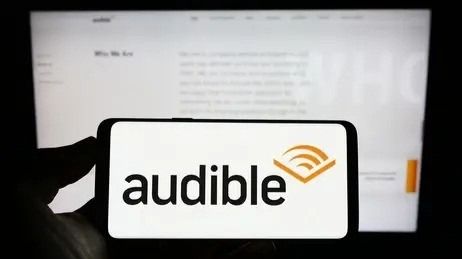Amazon.com has asked a U.S. judge to dismiss a lawsuit it called “implausible” brought by independent authors who accuse the e-commerce giant of monopolizing the retail market for audiobooks and forcing them to pay more to distribute their works.
In a filing in Manhattan federal court Monday night, Amazon defended the 90-day exclusivity clause that its digital audiobook subsidiary Audible offers to self-published authors.
Amazon also said the audiobook market was competitive, with Apple and Google offering rival platforms.
Author Christine DeMaio, who publishes under the name CD Reiss, alleged in her June lawsuit that Amazon violates U.S. antitrust law by charging higher fees to writers who refuse to participate in Audible’s exclusivity program.
Amazon and Reiss’s lawyers did not immediately respond to requests for comment Tuesday.
Amazon bought Audible for about $300 million in 2008. The lawsuit called Audible the largest audiobook retailer in the world, accounting for more than 60% of domestic purchases compared to about 20% of Apple .
Industry-wide audiobook sales have been steadily increasing in recent years and are expected to reach nearly $2 billion in 2022, according to the lawsuit.
Amazon’s exclusivity program offers self-published authors 40% royalties for distribution of their work, compared to 25% for authors who choose competitive, non-exclusive distribution.
Amazon’s brief says its optional exclusivity clauses, which do not apply to best-selling books from major publishers, are “limited both in duration and in proportion to affected audiobook sales.” It says the program’s 90-day term is shorter than the 1- to 3-year range that courts use to determine competitive harm from an exclusivity agreement.
“The complaint does not allege facts showing that Audible has in any way hindered Google or any other identified rival by inducing certain self-published authors to sign exclusive agreements,” Amazon’s filing states.
The change from exclusive to general distribution is permanent, according to Reiss’ lawsuit. Reiss claimed that Audible’s policy “is designed to prevent experimentation, innovation, and a test of competition by discouraging authors from distributing competitively.”
Amazon also said it was legal for the company to spend more resources promoting its exclusive content than its other titles.
Reiss is seeking class-action status for thousands of authors and rights holders.
Disclaimer:
The information contained in this post is for general information purposes only. We make no representations or warranties of any kind, express or implied, about the completeness, accuracy, reliability, suitability or availability with respect to the website or the information, products, services, or related graphics contained on the post for any purpose.
We respect the intellectual property rights of content creators. If you are the owner of any material featured on our website and have concerns about its use, please contact us. We are committed to addressing any copyright issues promptly and will remove any material within 2 days of receiving a request from the rightful owner.

